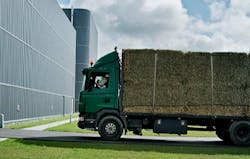Dow aims at future use of Bio-based Ethylene for Plastics
Materials science company Dow has partnered with bio-conversion firm New Energy Blue to reduce carbon emissions associated with plastic production.
The company says it has entered into a long-term supply agreement with New Energy Blue for bio-based ethylene produced from renewable from corn stover (stalks and leaves). Dow plans to buy this bio-based ethylene and use it in recyclable applications across packaging, footwear, and transportation.
“We are unlocking the value of agriculture residues in this new partnership with New Energy Blue,” said Karen S. Carter, Dow President of Packaging & Specialty Products. “By committing to purchase their bio-based ethylene, we are helping to enable innovations in waste recycling, meeting demands for bio-based plastics from customers, and strengthening an ecosystem for diverse and renewable solutions.”
X-energy chooses Dow's Manufacturing site to support Advanced Nuclear project
Louisiana Chemicals plan installs Cogeneration convering Steam into Electricity
Under the terms of the agreement, Dow will support the development of New Energy Freedom, a new facility located in Mason City, Iowa. The facility is expected to process 275 kilotons of corn stover annually and produce commercial quantities of second-generation ethanol and clean lignin.
Approximately 50 percent of the ethanol will be transformed into bio-based ethylene feedstock for Dow’s products.
Furthermore, the agreement offers Dow similar commercial supply options for New Energy Blue’s next four projects, thus supporting the scalability of its production and providing a reliable market for agricultural residues. These five projects combined are projected to displace more than one million tons of greenhouse gas (GHG) emissions every year, while also reducing Dow’s reliance on fossil fuels and associated GHG emissions.
Through this partnership, Dow plans to increase its usage of renewable resources that are still recyclable, transforming them into products that are commonly used by consumers. Additionally, since corn stover emits carbon dioxide into the atmosphere during decomposition, the collaboration with New Energy Blue enables Dow to repurpose this otherwise wasted carbon, thereby contributing to a reduction in carbon emissions from agriculture.
To ensure the traceability and sustainability of the bio-based feedstocks from New Energy Blue, Dow aims to obtain certification from ISCC Plus, an internationally recognized sustainability certification program. This certification focuses on tracking raw materials within the supply chain. By adhering to ISCC Plus's chain of custody certification, Dow’s customers will have the ability to account for the use of bio-based materials in their own supply chains.
Moreover, the supply agreement between Dow and New Energy Blue brings economic benefits to farmers by creating a reliable new market. New Energy Blue’s upcoming processing facility in Iowa will directly source corn stover from local farmers each year.
“Together, we’re building a future not only in the farm fields of Iowa using corn stover, but across America and around the world using a variety of biomass from grain straws to tall perennial grasses—wherever there’s an opportunity to reduce carbon emissions from farming, support farmers in rural communities, and enable the production of the sustainable, low-carbon plastics used in everyday life,” said Thomas Corle, CEO of New Energy Blue.
